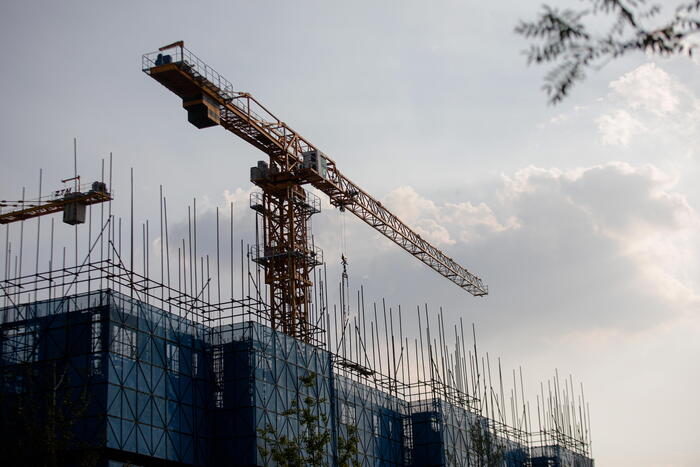In the heart of Hong Kong, in a protest convoy on Connaught Road Central, a young man is waving a US flag. In his fist he holds a whole bundle of white-red-blue pennants to distribute to other protesters. "We hope that the US will soon make a decision to punish Hong Kong government officials and police officers," says the 20-year-old, who calls only his first name Abbot.
A good two weeks after this scene took place, the decision has now been made: on Wednesday evening, Donald Trump has signed two laws that the US Congress had recently passed in a rare example of bipartisan unity:
- The Hong Kong Human Rights and Democracy Act requires the State Department to annually review Hong Kong's autonomy status . The law also allows for sanctions against officials responsible for human rights abuses in the city.
- The second law blocks the granting of new export licenses for certain products used by the Hong Kong police against the demonstrators, such as tear gas, handcuffs and rubber bullets
The laws, however, have consequences not only for Hong Kong government officials and police officers, as demanded by the demonstrator Abbot, but also for the US-Chinese relationship and possibly Hong Kong's people themselves.
In the People's Republic, it was eagerly awaited whether Trump signed the two laws at all. That would not have been necessary for them to come into force: after a ten-day deadline, this would have been automatic even without his signature.
Even a veto that Trump could have filed would probably have been ineffective: Congress could have won it back with a two-thirds majority. Promoting freedom and democracy in the public eye while at the same time imposing a ruling on China, Republicans and Democrats can even agree on this in 2019.
Hostile, well-meaning or neutral?
The result could influence Trump so only conditionally - but certainly, as China perceives him: as hostile to the pecking-faith Hong Kong government, as well-meaning or neutral.
So far, he had positioned himself contradictory. According to the New York Times, he promised China's Party leader Xi Jinping at the start of the demonstrations that he would not comment on this as long as it preceded the trade talks. Later, he asked Beijing via Twitter to settle the issue "humane". Then again he called Xi a "fantastic guy" and a "friend".
Trump's now signed signature is therefore an affront to Beijing. The Chinese Foreign Ministry harshly forbade this "interference in internal affairs" and, for the second time, ordered the US Ambassador within three days.
Although Trump has added the not entirely consistent appeasement, his signature was "out of respect for President Xi, China, and the people of Hong Kong". But a close agreement in the trade war, which had been rumored in recent days, has not become easier.
Special trade relationship with Hong Kong under scrutiny
The Hong Kong people could also unintentionally hit the new laws. Undoubtedly, it is in the interest of the protest movement if the US now cuts Hong Kong's supply of tear gas or if those officials responsible for police violence are no longer allowed entry and investment. However, should the US government find itself in the upcoming annual review that Hong Kong's independence is not far away, it will not least affect the population.
When Great Britain returned its crown colony to China in 1997, the People's Republic of Hong Kong secured "a high degree of autonomy" for 50 years in return. Based on this status, the relationship of the Chinese Special Administrative Region to the USA is based: they have a special trade relationship; the city is exempt from the current US punitive tariffs against China.
Hong Kongers are more likely to receive US visas than mainland Chinese, and are usually given longer stays. All this would be up for grappling if the US no longer considers Hong Kong's autonomy a given. Also at the expense of the young, cosmopolitan Hong Kong people who carry the protest movement.
For Abbot, the demonstrators with the US flag, such considerations are subordinate. For him, the warning signal is sent to the powerful in Hong Kong and Beijing. "I hope," he says, referring to US laws, "other countries can do the same for us."













